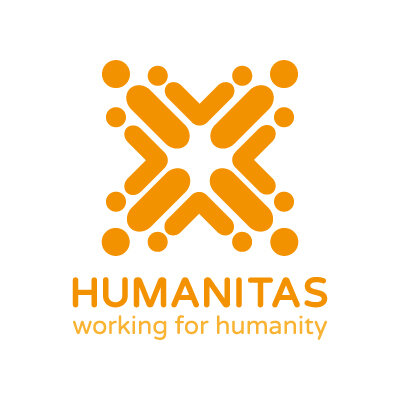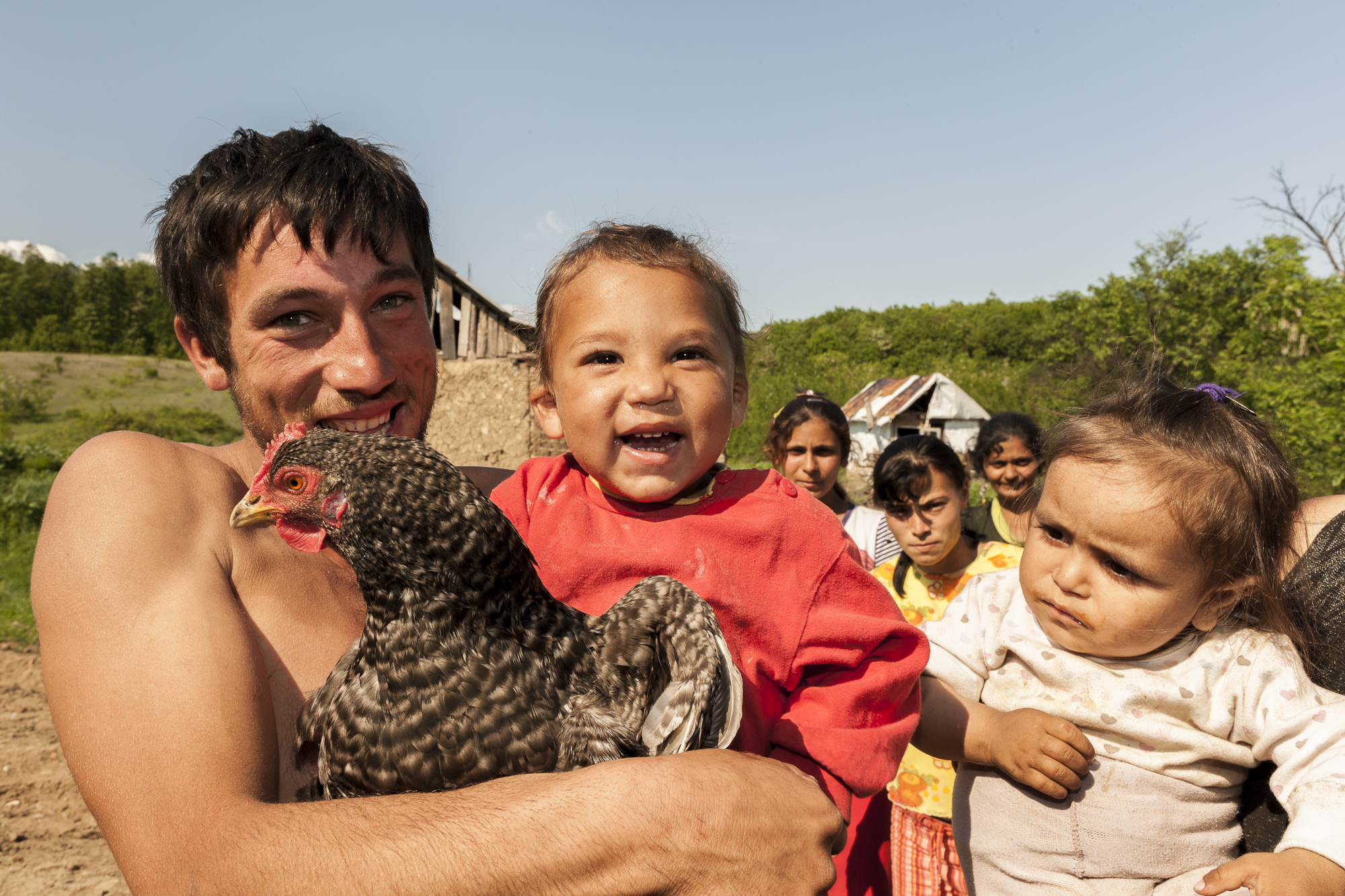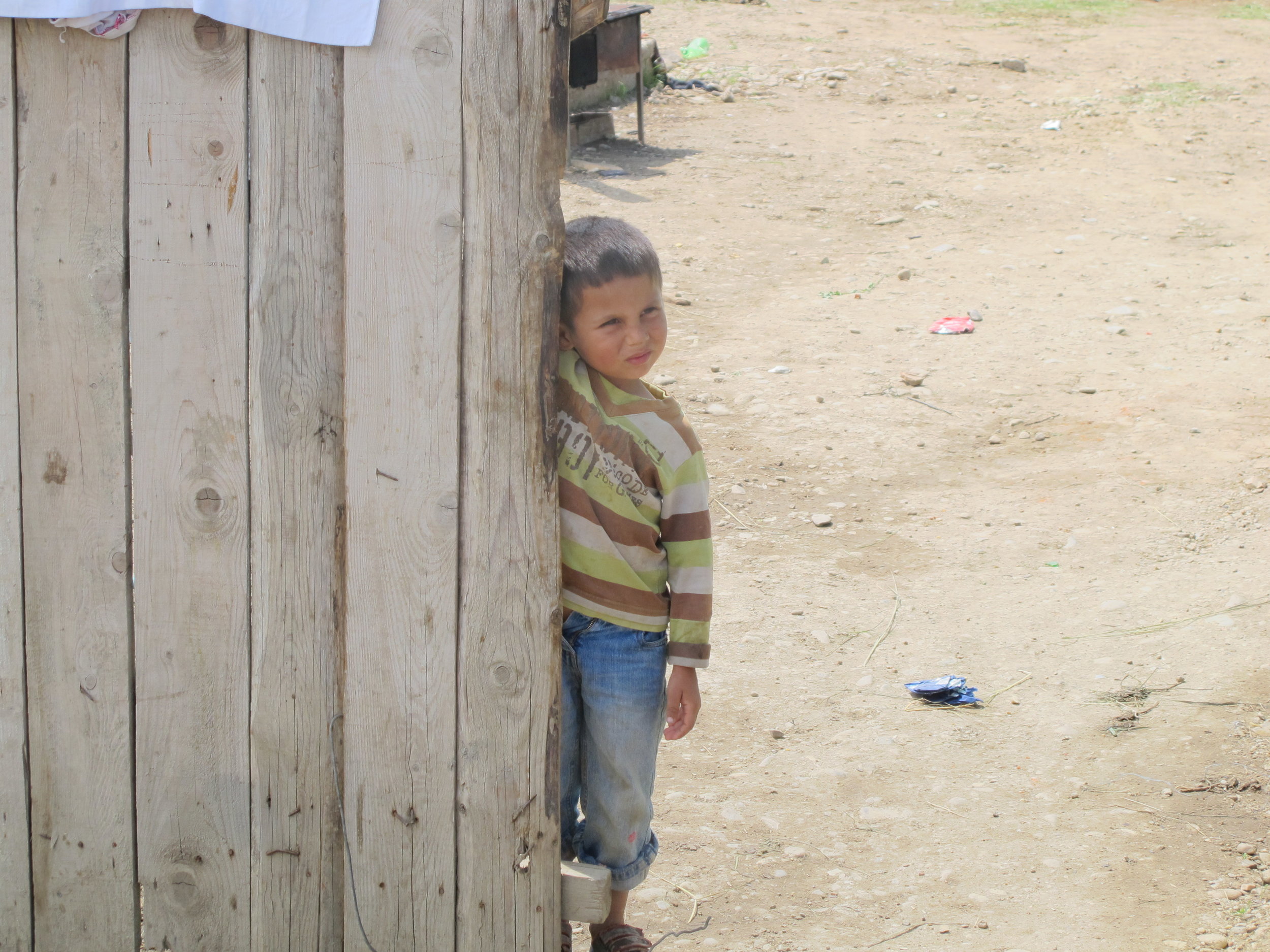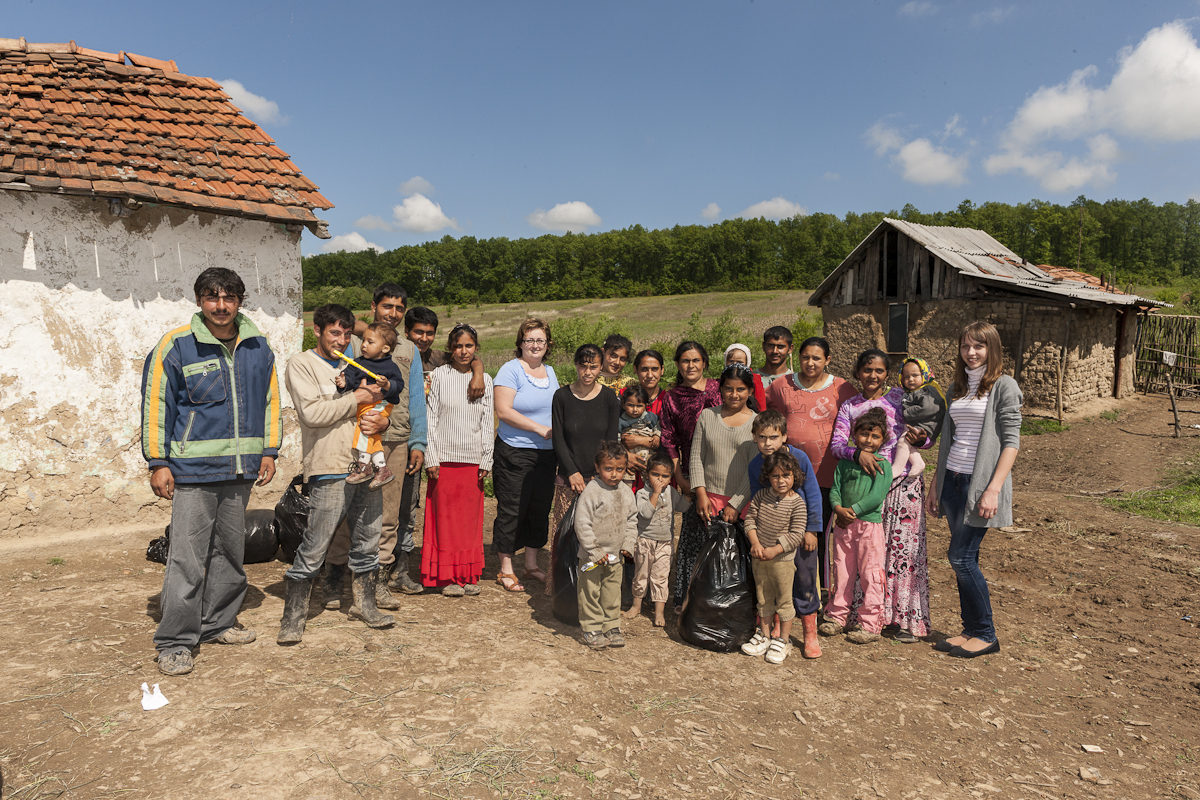OUR HERITAGE WORKING WITH ROMA
We have been privileged to work within Roma communities since 2001. Our current focus is on supporting Roma communities within the UK focussing around Health care, Education and general support dependant on the community’s needs.
We have been leading in our field for over 17 years and have successfully developed and implemented a medical clinic, a second chance schooling system, a foster care system, two residential homes, a therapy centre and a counselling service for local maternity hospitals.
Our two senior staff Sarah Wade (CEO & Co-Founder) and Dr Ramiz Momeni (Director & Co-Founder) respectively have seventeen years’ experience living and working with the Roma in Romania. They have successfully implemented and managed projects on the ground in Romania and are now based in the UK to oversee and manage the implementation of UK based projects. There are three
Romanian speaking team members who work in the UK and a further senior staff team member in Romania who has experience of managing the social services, health care and educational teams
We started our work in Romania in 2001. Our senior team worked and lived in Romania for 17 years developing and implementing health care, educational and social projects within Roma communities. These communities proved to be challenging environments in which to work and required us to adopt a flexible and creative approach that would empower individuals to make lasting change. It took considerable dedication and commitment by the team to engage with communities who have suffered years of discrimination, persecution and social exclusion.
+ Healthcare
Medical clinics
Our medical clinic was situated in one of the largest Roma communities in the local area, pertaining to over 3000 Roma. This community had the highest child abandonment rate in the county of Bihor, so the focus of the Clinic was on family planning, health care services and support for new mothers. The medical clinic was staffed full time by a family doctor, gynaecologist, two nurses, a social worker, a family planning counsellor and a receptionist. In addition to this, the clinic ran special treatment weeks with volunteer doctors from the UK including a team of cardio, orthopaedic and plastic surgeons who would provide free medical consultations and treatment.
Counselling in maternity hospitals
The highest level of child abandonment in Romania happens in the local maternity hospitals as soon as the mother has given birth and over 90% of these women are Roma. Our response to this problem was to set up a counselling service within the maternity hospital which linked to the organisation’s family support programme. We were the first organisation to be given authority to work within the maternity hospital in the county of Bihor. Our counsellor would spend time with the new mothers pre and post birth, this counselling would focus on the mother and baby relationship to prevent the abandonment of the child. This would also include family planning options where the mother could enter a long-term contraception programme to prevent further unwanted pregnancies.
Once a mother had been successfully supported by our counselling team to leave the hospital with her child then our social services team would carry out a family evaluation to assess if the family require further support. In the instance that it was decided a family required additional support, the family would be provided with access to the Humanitas family support programme, which would offer bespoke support to the family - dependant on their need. Families usually received support for 6-12 months, however, there were also families who Humanitas continued to work with for an additional year if the need was great. In addition to this support, all Roma mothers who left the hospital with their child would receive a ‘new mum’ packages which were provided to the mother when leaving the hospital and would be tailored to the baby and mother’s needs.
+ Education
One of the stipulations for adults to join our family support programme was that any children within their family must be enrolled in the appropriate education provision for their age. Our team would support the children to enrol in addition to working to diminish barriers to e-learning through the provision of the necessary learning resources.
In addition to this, we developed and implemented Second Chance Schooling for Roma adults which was supported with job opportunities at the end of the course. This was an accelerated educational course that ran part time over two years. At the end of the course the adults who completed their exams received an educational certificate which was recognised by the government, enabling them to legally enter employment. The engagement rate for this programme exceeded that of the government’s adult education programme participation rate.
+ Family Support
Social Services Department and Family Support
The Humanitas family support team focussed on both the welfare of the new born baby and mother and took a holistic approach to supporting the family. In order to provide this service to the whole country we worked in collaboration with the health services, social services, child protection officers and education services, Each family would need to agree to specific stipulations for support to continue; the main requests were for their children to be in full time education (which was supported by the team) and for one of the parents to either be attending Second Chance Schooling or to be in work placements. Our team sourced bespoke placements which were suited to the skills and needs of the Roma community. Our team liaised with both the organisations offering the work placements and the participating Roma to ensure all barriers to effective engagement were diminished and to promote the longevity of the placement. Other support that we offered to the families would range from assistance with completing documentation (the organisation ensured that all families had birth certificates for their children and ID cards for the adults,
resulting in them receiving financial support from the government) to legal counselling, reintegrating and reinstating children and teenagers into an education system and sourcing jobs for adults. In addition to this, we would provide emotional support, educational support and material goods such as wood heaters, food, furniture or other necessities when required.
Our extensive work with the Roma has highlighted to us the need for the ongoing strategies of inclusion for this vulnerable, hard to reach community. We are driven to develop inclusion and integration for Roma communities locally, nationally and internationally, a consequence of which, we believe, can be to affect real and sustainable change.
Safe Homes
Safe Homes was established in 2005 and comprises two residential homes for orphaned and abandoned children with disabilities. The homes house up to sixteen children who are cared for by live-in foster parents, with support from a physiotherapist, doctor and social worker. Many of these children need one-to-one care, which is provided by two sets of foster parents and additional staff working within the homes on a full-time basis. Due to the children’s disabilities and behavioural problems it has not been possible to place them with foster care families. Safe Homes has proved to be a perfect solution, allowing children to grow in a loving family environment with access to all the facilities and therapy, they need.
Therapy Centre
The Humanitas Therapy Centre was established in 2005 as a key resource in the rehabilitation and development of children with special needs living in the care of Humanitas. The therapy centre provides individually tailored daily/weekly therapy sessions run by qualified staff. Since 2010 the centre has also been open for use by disabled children living in the surrounding communities as it is the only one if its kind in the region.
Information on Roma
WHO ARE ROMA?
Roma background
Over the centuries, Roma history has been passed through the community using word of mouth as a means of communicating the stories from generation to generation. As a result of this, literary sources pertaining to the history of Roma are often contradictory and unreliable, as they are unlikely to have been written by members of the Roma community. One of the most prolific misconceptions about Roma history pertains to their origins. Many sources argue that Roma began their migration to Europe from Egypt, however recent studies into the genealogy of Roma has confirmed that Roma originate from India:
“The presence of Indian-specific Y-chromosome haplogroup H1a1a-M82 and mtDNA haplogroups M5a1, M18 and M35b among Roma has corroborated that their South Asian origins and later admixture with Near Eastern and European populations”1
In contemporary society Roma are traditionally a non-homogenous community, however this has not always have been the case. Roma migration has been mapped from Central India to Eastern parts of Northern India, to Persia, to Armenia and onto to the Byzantine Empire (Israel, Lebanon, Syria, Turkey, Albania, Croatia and Greece). Although it is unknown exactly when Roma began to split into sub-communities and travel independently of one another, on arrival in the Byzantine Empire it is largely contended that the Roma were a homogenous group due to similarities in their linguistics.2
Roma arrived in the Byzantine Empire as a result of unrest in Armenia, where they stayed due to a need for their trades within wider society. Consequently, many Roma settled in these countries and today continue to reside there.3
Those Roma who did not settle in the Byzantine Empire migrated on to Central Europe and others went on to settle in Western Europe. These groups were recorded as being no larger than 100 people in size and made up of men, women and children. The leaders of these groups called themselves ‘Counts’ or ‘Kings’ from ‘Little Egypt’. These groups told people that they originated from Egypt from where they had been banished due to a loss of their Christian faith. It is likely this is where the name ‘gypsy’ originated from, as an abbreviation of ‘Egypt’. It is recorded that at first, Roma were well received in Western Europe, with many of the women working as fortune tellers, however the language of Roma and their customs began to give away that they were not from Egypt and soon the Roma were looked upon with suspicion. This suspicion quickly turned to widespread hatred and countries all over Western Europe began implementing laws to expel the Roma from their lands. In under half a century many countries across Europe had made steps to expel Roma from their lands.3
1498 Roma are expelled from The Holy Roman Empire
1471 Roma are expelled from Switzerland
1499 In France it is decreed that Roma have either to stop travel through their lands, or leave the country within 60 days.
1504 & 1539 Laws are passed to expel Roma from France.
1526, 1538 & 1557 Laws are passed to expel Roma from Portugal. The law specifies that any Roma born in Portugal should be sent to Portugal’s African colonies.
1544, 1548, 1553 and 1560 Laws are passed to expel Roma from Holland.
1524 Laws are passed to expel Roma from Italian states.
1530 Laws are passed to expel Roma from England
These early experiences of expulsion were a prelude to the abhorrent adversity Roma would come to face in the following centuries.
Life in the 16th and subsequently, the first half of the 17th century was filled with brutal repression of Roma across Western Europe. In England, the ‘Vagrancy Act’ was passed, the outcome of which was that Roma could legally be branded, forced into slavery and publicly flogged. They could also face up to 6 months in prison because of their ethnicity. In France, Roma were to be sent straight to the galleys to be hung and subsequently Roma fled and were forced to live in secrecy in the woods with minimal sustenance. Similarly, in Germany, Roma were beaten, branded with an iron and expelled, if they did return to the country, they would be hanged.3
Towards the 18th century many European countries began to revise laws which allowed widespread murder of Roma, however their oppression was still rife. Hungary and Spain spear headed campaigns of forced assimilation and abhorrent treatment of Roma communities was still widespread with many facing lives excluded from mainstream society.3
Roma were targeted as a group of ‘untouchables’ during the Nazi regime in World War II. In 1938 a law was passed to ‘fight against the gypsy plague’. Roma were rounded up and sent to camps to be used as labour or to be killed. During this time, Dr. Josef Mengele was also given permission to experiment with on twins and dwarves from the Roma community. It is estimated that anywhere between 500,000 to 2.5 million Roma were killed in the holocaust.4
Until the First World Romani Congress in 1971, Roma continued to face oppression across Eastern Europe. The First World Romani Congress was organised to promote an awareness of human rights, and to maintain and promote Roma culture. Roma organisations began political campaigning at the highest levels, demanding that their voices be heard. It was at this first congress that the official Roma flag was unveiled.5
Despite these steps to address inequality for Roma, the fall of communism across Eastern Europe in 1989 brought a new wave of adversity for Roma. In 1990 European governments attended the “Charter for a New Europe” summit, during which it was warned that minority groups would be particularly vulnerable during to the transition into democracy due to likely increases in attitudes of prejudice and racism.6 This warning proved to carry truth, particularly for Roma, as the New York Times reported in 1993:
“The millions of Gypsies of Eastern Europe have emerged as great losers from the overthrow of Communism and the end of the rigid controls that it imposed on daily life.
Many of the economic and social protections that Gypsies enjoyed in Hungary, Romania and Czechoslovakia collapsed, permitting a revival of the open prejudice and persecution that have marked the history of the Roma, as Gypsies prefer to call themselves, since they first reached Europe in the 11th century after a long migration from the Indian subcontinent.”7
It is widely accepted that the shift to democracy across Eastern Europe, where many Roma were residing, marked a period of increased hate crime and racial tension for Roma communities due to a loss in the economic systems which had offered them stability and equality. This widespread discrimination and prejudice towards the Roma community continues in contemporary society and less than thirty years after the collapse of communism, is markedly more prolific in the Eastern European countries where many Roma continue to reside.
In contemporary society
In contemporary society, Roma are widely regarded as Europe’s most vulnerable ethnic group. The history of persecution and adversity faced by Roma communities continues to feed into a cycle of oppression in which Roma exist on the outskirts of society and are excluded from education and employment opportunities.
Below are just some examples of adversity and oppression faced by Roma communities in Europe over the last two decades:
2000: Parents of the 633 students of San Juan Bosco school in the northern Spanish town of Baracaldo protest against the admission of three Roma children.8
2002: A Romanian politician makes the following statement about Roma:
“Our gypsies are stupid. They could at least be crafty but they aren't. They are just primitives and they manage to irritate the entire society which is already watching them closely [...] They run through the country and Europe barefoot, slimy and dirty, wearing clothes which are more likely to disgust you than make you feel sorry for them [...] Begging, soliciting and being disorganised will never bring them any advantages” 9
2007: Reports in Czechoslovakia of forced sterilisation of Roma women.10
2011: French government reportedly pay Roma cash bribes (€300 per head) as an incentive to leave France and return to Romania.11
2012: European Court of Human Rights rules that Hungary legitimised the abuse of Roma communities which saw non-Roma throwing rocks and paving stones at their homes, when they failed to inflict legal consequence on the perpetrators. 12
2013: The European Court of Human Rights rules that the governments of member countries must end segregation of Roma students residing in their countries as a result of repeated and systematic misdiagnosis of mental disability in Roma students in Hungary which was found to violate human rights law. 13
2015: 70% of Europe’s 10-12 million Roma are recorded as living in dire poverty. 14
June 2018: Italy’s deputy Prime Minister announces his plans to expel nomadic Roma from Italy. 15
October 2018: A United Nations Forum on Minority Issues reports that Roma children in the Czech Republic continue to be disproportionately allocated to schools designed for children with disabilities. 16
The abhorrent treatment of Roma continues today in many parts of Europe, where Roma are forced into segregated schooling. In some countries, more than half of the Roma child population is sent to schools for mentally handicapped children.17 In the instance that Roma are taught in mainstream education provision they are often segregated into Roma only classes. Many Roma do not finish their schooling and consequently there are high levels of illiteracy in the community and low levels of employment; only one in three Roma are in paid employment. 18
Despite popular belief, most Roma are not nomadic and live in settled communities, most of which are segregated and sub-standard due to discrimination in their host country. Only 62% of Roma residing in segregated areas in Romania and Bulgaria are recorded and having access to improved sanitation. 19 Most Roma live in a minimum of two to a room and there is often no access to energy sources such as gas or electricity.
Over the last decade, the adversity faced by Roma has begun to garner attention at a European level. One outcome of an increase in awareness of Roma discrimination was the framework for the development of integration for Roma communities living within EU member states up to 2020, published by the European Union. 20 The framework called for every member state to implement a National Roma Integration strategy which would leave ‘no room for the persistent economic and social marginalisation of what constitutes Europe's largest minority. The UK government however, chose to use existing, mainstream policy and legal mechanisms to deliver Roma integration rather than develop a National Roma Integration Strategy. This framework is now in its final year and in the absence of any changes in policy pertaining to integration for Roma in the UK, the responsibility has fallen to wider services to implement inclusive approaches to bridge the gap and ensure their services are accessible for members of the Roma community.
ROMA IN LUTON
The increase in Roma migration to the UK in 2004 and 2007 respectively was largely motivated by the continued experiences of oppression, social exclusion and prejudice in the country of origin for many Roma communities. Research into the 2004 and 2007 waves of migration showed that many Roma were seeking asylum in an ethnically diverse and rich country, free of the discrimination which was an integral part of their life in the country of origin. 21
“They [Roma] also maintained that such a celebration of one’s ethnic origin, encountered not just at home, but also at school, in the workplace or among non-Roma friends, would not have been possible in their country of origin, where to date, Roma have remained “second-class citizens” for most of their non-Roma counterparts and peers. They also claimed that this inherent, deeply ingrained racism, had been ‘institutionalised’” (Fremlova, 2009) xviii
It is these repeated experiences of institutionalised racism in the country of origin which have led to Roma being fearful of identifying as such. Many Roma in the UK choose to identify as being from their country of origin once they arrive the UK due to the adversity and oppression, they have faced living as Roma. Therefore, although there are estimated to be 2,000 Roma living in Luton, the exact figure is unknown due to a reluctance in the community to identify as Roma. Subsequently, education, healthcare and family support services in Luton have all reported Roma a lack of engagement from members of the local Roma community which risks increased problems around integration and cohesion for this vulnerable and hard to reach community.
Targeted Youth Provision
In November 2017 we launched Lutons first targeted youth provision for Roma young people in collaboration with Tokko Youth Space, a youth charity based in Luton.
The project sought to promote community cohesion for one of Luton's newest communities and for whom there were no existing specialist services within local provision.
This project developed community cohesion through an identification of barriers to inclusion through the voice of the young person. We provided a range of professionals to facilitate the sessions including a Romanian speaking doctor, a Romanian speaking project worker and a JNC qualified youth worker. A direct result of the project has been increased access to local services for Roma young people across both the third sector and local authority. Roma young people have also had the opportunity to access Tokko’s wider services alongside the existing diverse membership population, facilitated by staff from Humanitas. It is these relationships we wish to further develop in order to effect real change locally.
Roma Interagency Forum
In 2018 we have developed and implemented Lutons first Roma Interagency Forum. The forum is an opportunity for professionals across Luton to share best practice approaches to working with the local Roma community. The forum meets once a month and is attended by professionals from local Non-Government Organisations and the Local Authority. The aim of the forum is to improve access to local services for the local Roma community through a multi-agency approach with a view to affecting long term and sustainable change for the local Roma community.
Moving forward
Our time running the interagency forum has highlighted the difficulties associated with a lack of statistical evidence pertaining to the number of Roma residing in Luton, which has arisen as a result of Roma’s averseness to engaging with authorities. In the absence of statistical evidence from which to assess the needs of the local Roma community it is critical that professionals are able to demonstrate an understanding of Roma culture as a prelude to developing relationships with the community and improving their engagement in local services. There is evidence to suggest that when Roma feel their culture is understood and accepted, they are more likely to engage with wider services. Furthermore, our research has shown the success of multi-agency approaches in successfully engaging Roma communities, particularly those which utilise an approach in which a Roma specialist worker is employed. Therefore, it is now paramount that in the absence of evidence of need pertaining to the local Roma community, local services and organisations in Luton can begin to consider alternative approaches to addressing a lack of access to services.
FAMILY SUPPORT
Flying Start
https://www.flyingstartluton.com/
Flying Start offers support to parents to:
Support improved birth outcomes and encourage healthy diet and lifestyles for babies, young children and their families.
Support healthy bonding between parents and their babies and young children.
Improve babies’ and young children’s communication and language skills.
Flying Start wants to make sure parents find it easy to access the services and support they need, when they need it and where they need it.
Safe at Home
Luton Safe at Home is a child accident prevention programme aimed at families from pregnancy through to the child’s 5th birthday.
https://www.safeathomecip.org.uk/
Early Help Team and Stronger families programme
The Luton Stronger Families programme provides support for families experiencing multiple difficulties. Please note that there is eligibility criteria for this programme which is outlined on the website.
The programme will allocate a dedicated worker or agency to help families to address the underlying problems as a whole, rather than individual services/agencies responding to the presenting problem of each family member.
The programme will work with the whole family in a way which recognises they interact and influence each other rather than viewing them as individuals with a problem.
The programme will develop a relationship with the family, be persistent and build trust with them in order to challenge them to make the changes they need to, step by step.
Where appropriate, they will draw in specialist services in a sequenced way at the right time for the family rather than services being available on the basis of meeting thresholds and availability.
Professionals: to refer a family to the Early Help Team go to the website above, complete and submit an early help assessment form to eha@luton.gcsx.gov.uk.
Family Information Service
The Family Information Service provides information, advice and guidance on a variety of services, helplines and websites that are useful to parents, carers, children and young people under the age of 20, and the professionals that might be working with them. The Family Information Service can provide information about childcare, childcare careers, family services, activities for children & young people, help with the cost of childcare and much more.
Family Information Service-Family Directory
This is an online directory service containing the details of many organisations that families may find useful. The directory allows users to access information about a wide range of services and gives users the option to search for an organisation to meet a particular need.
EDUCATION
In addition to the existing formal education services in Luton (pre, primary and secondary school provision) there are organisations which offer informal education provision for young people in and around Luton.
Tokko Youth Space
Tokko Youth Space is a local youth work organisation which supports young people aged 13-19 (up to 24 with disabilities) across Luton through a variety of projects and programmes.
Youthscape
Youthscape is a national youth work organisation. The organisation offers face to face work to support young people in Luton.
Luton Youth Space at the Centre for Youth and Community Development
Luton Youth Space (LYS) aims to deliver a range of opportunities to young people, aged 11-19 years and up to 25 for those with learning disabilities.
Luton Youth Advice
Available with Luton Aspire, this service is for anyone aged 15 to 24 years old who is currently not in education, employment or training.
The service aims to develop the following skill areas:
personal and social skills
employability skills
application skills
https://www.luton.gov.uk/Education_and_learning/youth/advice/Pages/Luton-Youth-Advice.aspx
Education Welfare Services
https://directory.luton.gov.uk/kb5/luton/directory/service.page?id=E4efFpUs9q0
The service promotes and enforces regular school attendance and works with schools to raise overall attendance levels.
As part of the Prevention and Early Intervention Service Education Welfare Officers work closely with colleagues to support families who have difficulties, and will act as lead professional in appropriate cases.
HEALTHCARE
Mind BLMK
Mind BLMK works across our communities to support positive mental health and wellbeing. Working closely with a range of partners, they offer a number of services from their wellbeing centres and local venues to make a difference to the mental health and wellbeing of people in Bedfordshire, Luton and Milton Keynes. Their aim is to make sure that no-one has to face a mental health problem alone.
Total Wellbeing Luton
Total wellbeing Luton offer support to:
Stop smoking.
Manage your weight.
Be more active.
Have a NHS health check.
Manage an existing health condition.
Get support with non-medical aspects of health.
Explore feelings of stress, anxiety and low mood or manage other emotional health conditions such as phobias or OCD.
Active Luton
Active Luton work to improve the lives of Luton’s residents whatever their age, ability, way of life or culture.
They develop and promote affordable, accessible and inclusive opportunities in Luton for people to take part in fitness and physical activity, improve health and general wellbeing and enhance careers.
Luton and Dunstable Hospital
Luton Sexual Health Service
Luton sexual health offers the following services:
Contraception
Sexually Transmitted Infections (STI’s)
Pregnancy
24 and under
HIV
https://www.lutonsexualhealth.org.uk
In addition to this they offer information and advice in the following areas:
Contraception
Sex and relationships
Condom user guide
LGBTQ
Sexually Transmitted Infections
They also offer urgent help in the following areas:
BARRIERS TO ROMA ACCESSING SERVICES AND HOW TO BRDIGE THE GAP
Barriers to Roma accessing services
The barriers which Roma face in accessing services are multifaceted. Historically, the relationship between statutory services and Roma communities has been fraught with deception and mistrust due to repeated incidents of institutionalised racism across
Eastern European countries. The impact of this reverberates through contemporary society and continues to influence their ability to engage effectively with wider services.
+ Language
In contemporary society Roma have a deep rooted aversity to authorities which has led to reluctance in the community to engage with people outside of their community. In addition to this, across Europe, many Roma communities are confined to live in segregated areas away from the wider community. Roma have therefore become accustomed to living in isolated communities in which integration is not common place. Subsequently, for many Roma, it would not be the norm for them to be expected to communicate with people outside of their own community. Furthermore, the stark differences between the Romanian language and the English language make learning English particularly difficult for many Roma, something which is further exacerbated by high levels of illiteracy amongst Roma adults.
+ Education
Roma are recorded as having high levels of illiteracy due to low levels of educational engagement, attributable to discrimination against or segregation of those Roma who do attend full time schooling in many parts of Europe. The systemic educational segregation for Roma pupils which continues in countries across Eastern Europe today leaves many Roma families reluctant to engage in the UK education system. As a result of this, there are extremely low literacy levels within the community which presents as a considerable barrier when Roma come to engage with a service. Roma are often unaware of services existence in the first instance due to many services being advertised or promoted using posters, leaflets or written information online. Furthermore, most organisations require users to complete preliminary paperwork ahead of accessing the service which would present as a barrier for many Roma.
+ Law & Policy
In the UK, non-statutory services, or those across the Voluntary and Community Sector are likely to be unfamiliar to the Roma community as they do not reflect the structure of services which is common place across much of Eastern Europe. Consequently, a lack of engagement from the Roma community may be as a result of a lack of awareness about the existence of such organisations and services.
Similarly, Roma may be unfamiliar with statutory services such as the Education Welfare Service, which are designed to support families. They may be expecting these services to adopt a punitive approach due to their previous experiences of statutory services in their home country. In addition to this, Roma may have concerns about making themselves known to services in the UK due to their beliefs about the consequences of certain services being aware of their residency, for example, the immigration services, the police and HMRC.
+ Healthcare
Historically, the relationship between Roma communities and health care professionals has been rife with mistrust. There is evidence of discrimination by healthcare professionals in some countries in Eastern Europe, where there are records of coerced sterilisation of Roma women.
The subsequent mistrust of healthcare professionals and systems has led to a lack of engagement with healthcare services for Roma people. Consequently, the Roma community are not effectively represented in health care services despite there being several serious health conditions which are known to be prolific within the Roma community, including tuberculosis, AIDs and other poverty-stricken illness’. These conditions tend to be more prolific within the Roma community due to the communities’ lack of understanding of medical issues at a primary level. This is further exacerbated by the fact that Roma avoid engaging with healthcare services due to their belief that they will have to pay overinflated fees to access medical aid, as is often the case in their home country.
Furthermore, there are several misconceptions about Roma pertaining to healthcare. It is often asserted that Roma women will not see a doctor if they are male. Although many Roma women would prefer to be seen by a female doctor in line with their values, adverse life circumstances and subsequent medical emergencies will override their traditional values in most instances. Similarly, it is often contended that Roma may be uncomfortable seeking support from specialist services, for example, mental health services because these topics are seen as taboo in the wider Roma community. Although this is not entirely untrue, a lack of Roma accessing services such as these is more than likely attributable to a lack of awareness and understanding about mental health conditions and the medical services seeking to address them.
How to bridge the gap
In order to increase the representation of Roma communities in local services it is critical that professionals are able to apply their understanding of how the Roma community believes they are perceived by the dominant population and how this informs their behaviours and attitudes.
Roma are generally fearful of professionals and therefore any professionals who approach Roma wearing lanyards or uniforms are likely to be unable to effectively engage them. An informal approach to engagement may be more effective, especially for initial contact or meetings with Roma.
Due to the mistrust between Roma communities and statutory services Roma are likely to be wary of any service in which their attendance or engagement is not voluntary. To this end, services which require a referral from other professionals as a means of access may present as a barrier. In this instance the professional making the referral should always use clear and concise communication and use a translator where possible to avoid miscommunication and to ensure the Roma understand the reasons behind the referral. This explanation should focus on the fact that the referral is of a supportive nature and is not seeking to reprimand or punish them in the first instance. Furthermore, most Roma have strong social bonds with one another and use word of mouth to communicate information across the community. Consequently, it would be advisable to ensure all communication with members of the Roma community is clear, to avoid it being miscommunicated at a later point and across a wider reach.
Where literary resources are used, there should also be an audio file made available. This should be made available in various languages to account for the variety of home countries from which Roma have migrated to ensure the reach of the resources is as wide as possible. Similarly, services should promote an awareness and understanding of their organisation and the services they offer through social media where possible and format this to be largely audio and visual. This should also be made available in various languages to ensure they are accessible across the Roma community.
Services should offer Roma cultural awareness training in house to develop an understanding of the Roma community in any staff member who has contact with service users. Please visit www.humanitascharity.org for more information about how we can facilitate this for you.
Our research has shown that the employment of Roma specialist workers on a short-term basis within services has successfully worked to support the initial engagement of members of the Roma community into services and to sustain their ongoing engagement. The implementation of Roma specialist workers in both statutory and non-statutory services should include Roma specialist workers working alongside service professionals and offering support and guidance pertaining to the specific needs of Roma which may present as a barrier to them accessing the service. Furthermore, Roma specialist workers will bridge gaps in awareness and understanding about the organisation and its services for wider family members. Roma specialist workers can also work alongside professionals to develop and implement realistic and effective strategies to address these barriers which are designed around the needs of the service and the Roma community.
Finally, services should begin to consider representing the voice of the Roma within services moving forward to ensure their service is inclusive of the needs of the wider community in addition to promoting cohesion and integration for the Roma community.
+ References
- https://journals.plos.org/plosone/article?id=10.1371/journal.pone.0048477
- http://romafacts.uni-graz.at/
- https://rroma.org/en/rroma-history/
- https://www.livescience.com/64171-roma-culture.html
- http://www.grtpa.com/wp-content/uploads/2015/04/Roma-Culture-Awareness-Guide-for-Police_April-2015.pdf
- https://www.researchgate.net/publication/287551654_Charter_77_and_the_Roma_Human_rights_and_dissent_in_socialist_czechoslovakia
- https://www.nytimes.com/1993/11/17/world/end-of-communism-worsens-anti-gypsy-racism.html
- http://www.errc.org/reports-and-submissions/barriers-to-the-education-of-roma-in-europe-a-position-paper-by-the-european-roma-rights-center
- http://www.errc.org/roma-rights-journal/being-a-gypsy-the-worst-social-stigma-in-romania
- https://www.hhrjournal.org/2016/12/coercive-and-cruel-forced-sterilisation-of-romani-women/
- https://www.bbc.co.uk/news/world-europe-19194639
- https://www.politico.eu/article/the-roma-peoples-hungarian-hell/
- http://www.romaeducationfund.hu/news/ref/news-and-events/wrongful-placement-romani-children-special-schools-europe-must-come-end
- https://www.bbc.co.uk/news/in-pictures-34515451
- https://www.theguardian.com/world/2018/jun/19/italy-coalition-rift-roma-register-matteo-salvini
- http://webtv.un.org/search/gender-equality-in-nationality-laws-11th-session-of-the-forum-on-minority-issues/5975292637001/?term=&lan=english&page=2
- http://irep.ntu.ac.uk/id/eprint/17390/1/200097_6874%20O'Nions%20Postprint.pdf
- https://childhub.org/en/system/tdf/library/attachments/50_roma_facts.pdf?file=1&type=node&id=26801
- https://observatorio-lisboa.eapn.pt/ficheiro/Living-conditions-of-the-Roma_Substandard-housing-and-health.pdf
- https://ec.europa.eu/info/policies/justice-and-fundamental-rights/combatting-discrimination/roma-and-eu/roma-integration-eu-countries_en
- http://equality.uk.com/Resources_files/movement_of_roma.pdf
CONTACT
Anna Butterworth
UK Projects Manager
A: 31 Bucklersbury.
Hitchin
Hertfordshire
SG5 1BG
They need you
Your contributions can make a direct and lasting improvement to the
lives of individuals who are deprived of education, health care, and a
family. Find out how you can help make a difference.








































